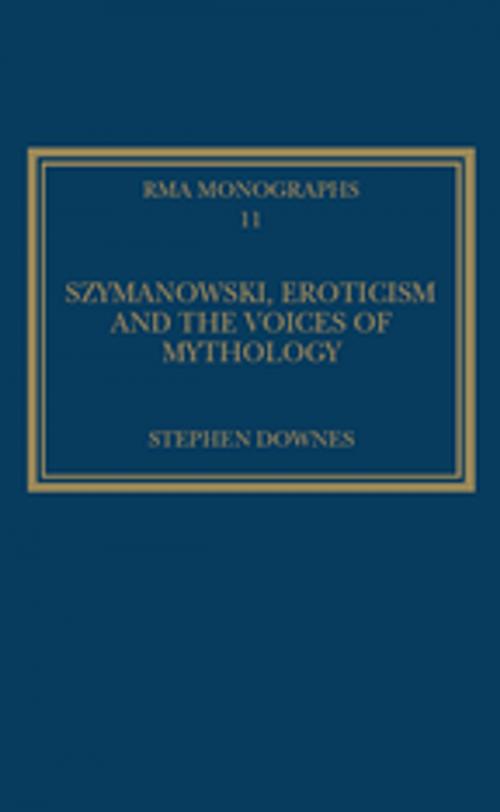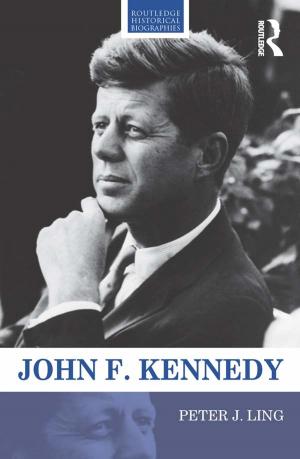| Author: | Stephen Downes | ISBN: | 9781351547239 |
| Publisher: | Taylor and Francis | Publication: | December 13, 2018 |
| Imprint: | Routledge | Language: | English |
| Author: | Stephen Downes |
| ISBN: | 9781351547239 |
| Publisher: | Taylor and Francis |
| Publication: | December 13, 2018 |
| Imprint: | Routledge |
| Language: | English |
The desire to voice the artistic revelation of the truth of a precarious, multi-faceted, yet integrated self lies behind much of Szymanowski's work. This self is projected through the voices of deities who speak languages of love. The unifying figure is Eros, who may be embodied as Dionysus, Christ, Narcissus or Orpheus, and the gospel he proclaims tells of the resurrection and freedom of the desiring subject. This book examines Szymanowski's exploration of the relationship between the authorial voice, mythology and eroticism within the context of the crisis of the modern subject in Western culture. Stephen Downes analyses mythological and erotic aspects of selected songs from the composer's early career, moving to an interpretation of the voice of the homoerotic lover, embodied as a mad muezzin, in terms of heroic notions of Orphic elegy. Discussing the encounters of King Roger with the voices of Narcissus, the Siren and Dionysus, Downes shows how the composer uses the unifying Christ/Eros figure as a means of indicating that the King might be transformed from anguished despot to loving expressive subject. The book ends with an examination of Szymanowski's desire to fuse Slavonic and Middle-Eastern mythological inspirations in an attempt to fulfil a utopian vision of a pan-European culture bound together by the spirit of Eros.
The desire to voice the artistic revelation of the truth of a precarious, multi-faceted, yet integrated self lies behind much of Szymanowski's work. This self is projected through the voices of deities who speak languages of love. The unifying figure is Eros, who may be embodied as Dionysus, Christ, Narcissus or Orpheus, and the gospel he proclaims tells of the resurrection and freedom of the desiring subject. This book examines Szymanowski's exploration of the relationship between the authorial voice, mythology and eroticism within the context of the crisis of the modern subject in Western culture. Stephen Downes analyses mythological and erotic aspects of selected songs from the composer's early career, moving to an interpretation of the voice of the homoerotic lover, embodied as a mad muezzin, in terms of heroic notions of Orphic elegy. Discussing the encounters of King Roger with the voices of Narcissus, the Siren and Dionysus, Downes shows how the composer uses the unifying Christ/Eros figure as a means of indicating that the King might be transformed from anguished despot to loving expressive subject. The book ends with an examination of Szymanowski's desire to fuse Slavonic and Middle-Eastern mythological inspirations in an attempt to fulfil a utopian vision of a pan-European culture bound together by the spirit of Eros.















